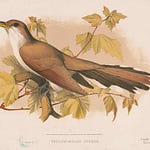So, you’ve got two young men of Athens and two young women, out in the forest at night. How come? One pair, Lysander and Hermia, were going to elope, because her grumpy father wanted her to marry a certain Demetrius instead. Demetrius isn’t any great shakes — he’s ditched his own girl friend, Helena, to go after Hermia. Helena and Hermia have always been as close as schoolgirls can get, or — as we’ll see — like cats in a catfight. Helena has snitched on Hermia, trying to get into Demetrius’s good graces. Crazy already? How about this? You have a bunch of working men, not the brightest lanterns in the porch, in that same forest, to practice putting on a ridiculous play about Pyramus and Thisbe, who eloped because their fathers couldn’t get along, and ended up, because of a lion and a big mistake or two, not getting out of there. The guys mean well, but if you don’t roar with laughter at their “poetry” and their bad acting until you weep, you’ve got to have lungs of stone! Can things in the woods get more confused? How about this? The fairies are about: Oberon their king, who’s on the outs with Titania their queen, so he’s going to play a trick on her to make her love the first critter she sees after she wakes up; and who’s the middleman but Robin Goodfellow, otherwise known as the Puck, full of mischief. “I am that merry wanderer of the night!” says he, and boy is that the truth!
Well, I’m not going to go through the whole of A Midsummer Night’s Dream. You’ll have to take on that delight for yourself. But you can imagine the wild things that happen with all those people in the dark, and one potion that makes you fall crazy in love, and another that makes you loathe what you loved, and Puck mistaking this boy for that boy, and Titania waking up to see a blustery weaver whom Puck has stuck an ass’s head on, and so forth. But they’re all set to rights in the end, though they still don’t know what hit them, and that’s where our Poem of the Week comes in. Theseus the duke of Athens is celebrating his own wedding to the Amazon princess Hippolyta, and he’s heard the stories the youngsters have told, and doesn’t believe them. He thinks that they have conjured them up by thought — by the power of imagination. Theseus is a rational fellow. Hippolyta’s not so sure. Of course, everybody knows that the woods aren’t full of fairies and you don’t fall in and out of love at a snap of the fingers, and so on; those things don’t happen! But the irony is that they did happen.
Theseus’ speech is famous, though, because despite his disbelief, he expresses in a wonderful way the creative power of the imagination. I don’t know that we appreciate this power of ours, so wondrous that the ancients thought it was a gift of the gods. My thought is bigger than Jupiter, vaster than the Milky Way, more mysterious than the deep blue sea. It’s not just that I can cut away from what is right before my eyes and ears and fingertips. I can summon up another world in thought: I can have second breakfast with the hobbits in the Shire, or go through a time warp with Meg and Calvin and Charles Wallace all the way to the planet Camezotz, or sail with Jack Hawkins and Squire Trelawney and Doctor Livesey and a peg-legged cook named Long John, to an island with buried treasure. We can open a door and enter the Secret Garden, or shut the door of our room and enter into quiet communion with our Maker — and that is in reality.
So Theseus is right, that “the lunatic, the lover, and the poet” are all made up of pure imaginative power, but I think that even he senses the beauty of it, or at least that’s what people have remembered of his playful speech. Here it is, my friends — and would you not rather be a lunatic or a lover, or even a poet, than somebody who cannot believe in a world with Oberon and Titania and Puck in it?
HIPPOLYTA. 'Tis strange, my Theseus, that these lovers speak of. THESEUS. More strange than true. I never may believe These antique fables, nor these fairy toys. Lovers and madmen have such seething brains, Such shaping fantasies, that apprehend More than cool reason ever comprehends. The lunatic, the lover, and the poet Are of imagination all compact. One sees more devils than vast hell can hold, That is the madman. The lover, all as frantic, Sees Helen's beauty in a brow of Egypt. The poet's eye, in a fine frenzy rolling, Doth glance from heaven to earth, from earth to heaven; And as imagination bodies forth The forms of things unknown, the poet's pen Turns them to shapes, and gives to airy nothing A local habitation and a name. Such tricks hath strong imagination, That, if it would but apprehend some joy, It comprehends the bringer of that joy; Or in the night, imagining some fear, How easy is a bush supposed a bear!
Listen to this episode with a 7-day free trial
Subscribe to Word & Song by Anthony Esolen to listen to this post and get 7 days of free access to the full post archives.













